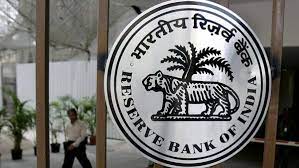The Monetary Policy Committee (MPC) of the Reserve Bank of India (RBI), led by Governor Shaktikanta Das, chose to leave the policy interest rates unchanged.
Though the status quo was in line with market expectations, the MPC opted to raise the inflation target for the financial year, which may add to investors’ worries. In this context, experts advise investing in debt funds investing in bonds, maturing in the short term.
Inflation remains a key concern
Inflation decreased to 4.3% in May 2023, but July and August inflation rates are anticipated to be higher. Food prices continue to be a crucial variable that can increase inflation. El Nino’s potential impact on the distribution of precipitation, and consequently on agricultural output, can further drive up prices. Food and crude oil prices have increased globally. The price per barrel of Brent crude oil increased to $87 on August 10, 2023, from $72 on May 31, 2023. These indicators suggest a possible rise in inflation rates.
Accordingly, the RBI has revised its inflation forecast for FY 2023-2024 from 5.1 percent in the MPC’s June review to 5.4%. “We must be prepared to go further, maintaining Arjuna’s eye on the inflation front and, if necessary, deploying policy instruments. In his address announcing the outcome of the MPC review, the Governor reiterated what he said in his policy statement from June: “Bringing headline inflation within the tolerance band is not sufficient; we must remain steadfastly focused on aligning inflation to the target of 4%.”
The RBI has also directed scheduled banks to maintain an incremental cash reserve ratio (I-CRR) of 10 percent on the increase in their net demand and time liabilities (NDTL) between May 19, 2023 and July 28, 2023 as a temporary measure to deal with excess liquidity in the banking system. This will be implemented commencing two weeks from August 12, 2023. This will be reviewed on or before September 8, 2023. In addition, the governor affirmed that the existing cash reserve ratio (CRR) will remain at 4.5 percent and there will be sufficient liquidity in the system to satisfy the credit needs of the economy.
How does that impact debt fund investors?
The Reserve Bank of India (RBI) is in no rush to lower interest rates due to its determination to keep inflation under control. Bond yields are predicted to stay elevated for a longer time frame. According to Deepak Agrawal, chief investment officer of fixed income at Kotak Mahindra Asset Management Company, “The RBI prefers to be in a ‘wait-and-watch’ mode to check if the recent food price inflation is getting generalised and prefers to keep rates on hold and keep the monetary policy unchanged.” For the rest of CY2023, the rate is expected to remain unchanged.
Short-term bond rates are expected to decrease if the RBI reverses the I-CRR by September with the intention of infusing liquidity in the September review or earlier.
Short-term bond yields in a sweet spot
After the MPC announcement, the benchmark 10-year bond yield did not change from its previous level of 7.17. If inflation rises, as Das said the RBI would, this might increase somewhat.
This is why, in comparison to long-term bond funds, short-term bond funds are less affected. Long-term bond holders take on the risk of fluctuating interest rates. Short-term bonds, such as those with maturities of one or two years, offer yields of roughly 7 percent, making them appear desirable in this context.
“Mint Road seems staunchly focused on keeping consumer inflation within the 4 percent target, while standing pat on rates and monetary policy stance,” says Dharmakirti Joshi, Chief Economist, CRISIL. Short-term interest rates may become more rigid if an incremental cash reserve ratio is implemented.
It might not be the best moment to investigate long-term debt options. Instead, this may be a good time to investigate debt plans that concentrate on the yield curve’s short end.
How should you proceed?
The Association of Mutual Funds in India (AMFI) reported net inflows of Rs 51,938 crore and Rs 8,608 crore into liquid and money market funds, respectively, in March.
June (the end of the quarter) had a net outflow of Rs 14,135 crore for debt-oriented schemes, but July saw a strong net inflow of Rs 61,400 crore. This demonstrates, without a doubt, that the short end of the yield curve is where investors feel most at ease. If you plan to keep your money in the market for only two or three years, short-duration debt funds may be an excellent choice. Investments in liquid, low-duration, and money-market funds can be considered by people with a horizon of less than a year. The current high returns can be taken advantage of with the use of such strategies. According to Value Research, short-term funds earned 6.46 percent and money market funds earned 6.62 percent in the year ending August 9, 2023.
A person’s investing horizon should ideally coincide with the scheme’s maturity period. The portfolio’s creditworthiness should also be evaluated.
Since macros have gone negative since the last statement in June, Trust Mutual Fund CEO Sandeep Bagla has described the monetary policy as a cautious wait-and-see one. The headline CPI reading for July is forecast to approach 6.50 percent. With a 12-month investing horizon, he suggested that the coming months would be an excellent time to increase the portfolio’s duration.
Now could be a good moment to lock in interest rates, since they appear to be nearing a peak. But don’t ignore credit risk in your pursuit of high yields.





